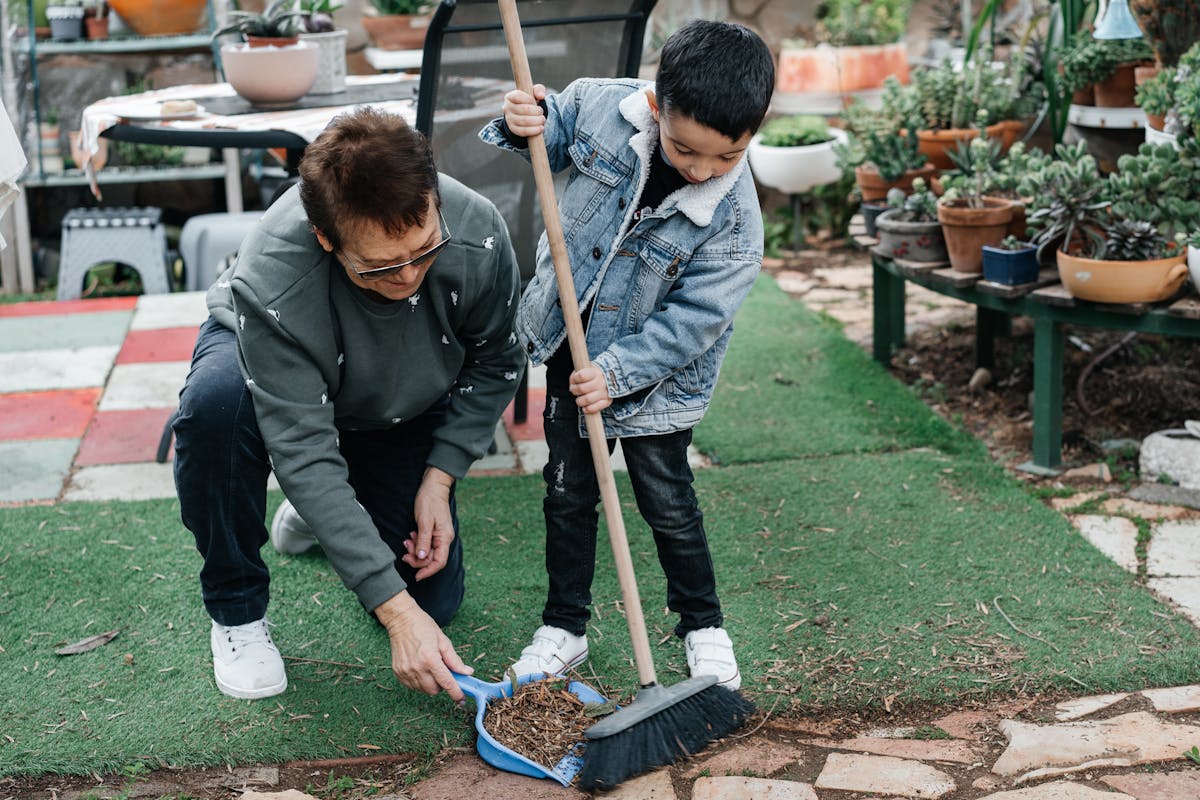Spring Cleaning Tips for All Ages

Spring is a season when many people decide to tackle projects around the house, from decluttering and organizing to deep cleaning. While few among us get excited about spring cleaning, the end result is usually worth the time it takes. And you’ll likely find your mental health improves when your house is neater and cleaner.
It’s important to approach these tasks with a plan. If you're working with kids, remember that each group has unique abilities and limitations. Here’s how to make the process age-appropriate while keeping it fun, practical, and easy to do.
Practical Spring Cleaning Tips
A good approach to take when you’re spring cleaning is to balance your available time with your long-term organizational needs. While you might want to dig into each and every closet or drawer, it’s important to set priorities that match how much time you can devote to this project.
Here are a few practical tips to get and keep your home organized and decluttered:
- Tackle the worst rooms first: People often struggle to figure out where to start spring cleaning. One piece of advice is to begin in the places where things seem most out of control, such as the closets or drawers that bring you the most stress. Work your way through those, and then move on to whichever spots in the home you still have time to tackle.
- Adopt the “one in, one out” rule: Professional organizers often recommend this practice to their clients. It’s a simple and effective way to avoid clutter. For every new item you purchase (whether it’s a new kitchen gadget, storage container, or pair of shoes), make sure to donate, recycle, or toss something you no longer use. This helps prevent unnecessary accumulation of items.
- Invest in drawer and cabinet organizers: This tip not only makes it easier to find things but also reduces clutter in your drawers and cabinets. You can also use stackable bins in your pantry or under the bathroom sink to organize items. Drawer organizers can be used in kitchens and bathroom cabinets, as well as dressers.
- Declutter the counters: Eliminating the clutter on kitchen and bathroom counters can reduce stress. Store appliances you don’t use daily, like the blender or toaster, and leave only the essentials out on the counter.
- Establish a deep-cleaning schedule: To maintain an organized home, set aside time once a month for a deep-cleaning session. This includes cleaning behind appliances, wiping down the tops of cabinets, and sorting through your pantry for expired or unused items.
Fun Tips for Including Kids in Spring Cleaning
For kids, organizing and cleaning should feel like an enjoyable activity rather than a chore. Encouraging them to participate in spring cleaning can not only teach them important life skills but also keep them engaged and motivated.
- Make it a game: Kids love games, so why not turn organizing and cleaning into one? Have them race against the clock to see how fast they can organize their snack drawer or sort out their sock drawer. Or challenge them to see how many plastic containers they can match with their lids. You can even reward them with a small treat or special activity once your list is completed.
- Provide “kid-friendly” cleaning tools: Kids can use cleaning tools that are made specifically for them, such as small mops, sponges, or brushes that fit their hands. Encourage them to wipe down tables, counters, and even low shelves. Not only does it help them feel responsible, but it also allows them to take ownership of their space.
- Encourage charitable behavior: This can also be a great time to begin teaching kids how to be charitable. Have them sort through their toy box to identify items to donate to a local shelter. Do the same with clothes closets and drawers.
Check Senior Safety Off Your To-Do List
If your to-do list also includes finding ways to keep a loved one safer at home, investing in a mobile monitoring unit might be a solution. Whether you have a teen who likes to run in a nearby park or an aging parent who lives alone, these discreet devices make it easy to call for help in the event of an emergency. Call 1-844-203-5617 to learn more!